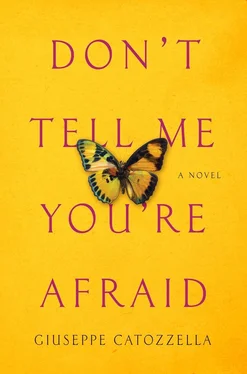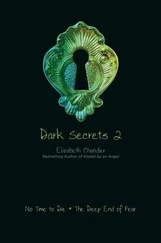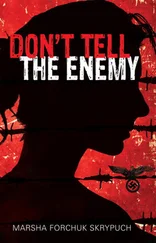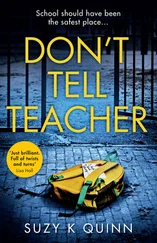On those summer evenings, when the air finally cooled down a little, after the races Hodan and I would play shentral . Those were beautiful, relaxing days, when we all forgot about the war. Shentral was played by drawing a bell on the ground and then writing the numbers one to nine in it. You tossed a pebble and it had to land on the bell. Our brothers were playing griir instead, sitting on the ground and making stones fly between their hands.
Every now and then on those drawn-out, breezy evenings, Ahmed, a friend of Alì’s big brother Nassir, would join us. Ahmed was seventeen, like Nassir and Said. To me and Alì he seemed very grown up, and to me and Hodan he looked handsome and unattainable. Ahmed had an olive complexion and light eyes, uncommon in Somalia; those green eyes gleamed in the moonlight and made his gaze seem all the more bold.
Once we asked him why his eyes were different from everyone else’s; he made the gesture of having sex — one hand forming a circle while his index finger moved in and out — and told us that his grandfather must be one of the Italians who had fooled around with the black girls. Nassir and Alì burst out laughing. Not my brother Said; he gave him his usual stern look and shook his head.
Said didn’t get along well with Ahmed, unlike Nassir, who idolized him. Maybe he saw him as a rival because of his friendship with Nassir, or maybe he just didn’t like him; he always had misgivings about him, saying that there was something in those light eyes that he didn’t trust. Alì never got too close to Ahmed either. He often stared at him, studying him, but he kept away from him. Usually, when Hodan and I played shentral, Alì stayed near his father and Aabe, who argued every night at cards, staring at Ahmed cautiously from a distance.
Some nights, after griir or playing ball, Ahmed and Said ended up scuffling, sometimes joking around and other times for real, and Aabe and Yassin would have to pull them apart. Once Said punched Ahmed so hard that blood spurted from his nose and stained his white T-shirt. He looked like he’d been hurt badly.
After a while Aabe made them shake hands, and the next night, as if nothing had happened, they were friends again.
One of the nicest things about those summer nights, however, was Hodan singing.
Often, after Hooyo and we girls had finished washing the pots, we would all sit in a circle for hours, listening to her velvety voice transform familiar tunes.
Aabe and Yassin sat smoking, their languid eyes turned to the sky, and I wondered what a big, handsome man like Aabe could be asking the stars. Every now and then my sisters and I and Hooyo, moved by Hodan’s words, would wipe our eyes and noses with our handkerchiefs; the older brothers and Ahmed sat in the dust, arms hugging their legs, staring at the ground.
Once in a while Ahmed looked up, and those icy green eyes flashed in the moonlight; he seemed to want to defy the moon. When he did that I turned my head away and brought my focus back to the face of Hodan, who, seated in the center, her eyes half closed, went on singing songs about peace and freedom.

THE NIGHT BEFORE the annual race, before our fathers came home from work, Alì and I did a forbidden thing: We ventured out to run.
It was six o’clock in the afternoon, the sun was low on the horizon, and the smell of the sea drifted right into the courtyard. Driven by a fresh breeze that was redolent with aromas beginning to rise from the braziers of the neighboring houses, the sea’s scent had seeped in and drawn us to it. There were only a few hours left before the race and we wanted to stretch our muscles and lengthen our strides. We felt a need to, like two real athletes.
Often the militia decided to have the curfew begin in the hours preceding Friday. That evening, in fact, no gunshots could be heard. Then too there was a full moon, enough light that it wasn’t too risky.
We wouldn’t go very far.
We set off with the idea of going around the block, as far as avenue Jamaral Daud, turning around at the national monument, then heading back.
Twenty, twenty-five minutes in all.
Alì had told me to put on the veils, but I hadn’t listened to him. Hooyo — who was bent over a steaming pot, cooking, wrapped in the gauzy white veils she wore around the house — hadn’t even noticed that we were going out. Nor had Hodan, inside the room with our other sisters.
Making as little noise as possible, we sneaked under the red curtain covering the opening in the boundary wall, sure that no one would spot us.
The war didn’t scare us; it was our “big sister.”
Often, when mortar strikes or machine-gun shots were heard, Alì and his friends Amir and Nurud would go up close to the militiamen to see how they fired. They crept up ever so slowly and hid behind a car or around the corner of a house and watched. The sound of rifles, of machine guns, excited them. When they came back to the courtyard, they talked a mile a minute, and I stood there gaping, listening to them; talking over one another, each of them wanted to tell me about a detail that he thought only he had seen. Their eyes were lit up, fiery as the opening of a rifle barrel.
Anyway, that night we ran for about twenty minutes. The air was cool and we didn’t get sweaty like during the day. That was the hour I liked; everything had slowed down, the day was drawing to a close, and instead of the afternoon’s blinding sunlight a suspended glow hovered in the air, the sun’s rays bouncing everywhere, reflecting off every particle of dust, but lower, more restful.
We were already on our way back, not too far from home, when we were forced to stop. Suddenly, at the end of a deserted alley, a jeep carrying fundamentalist militiamen appeared.
They were neither Hawiye nor Abgal nor Darod but members of Al-Shabaab, an Islamist militant group.
Ethnicity in this case had nothing to do with it. They were militants backed by extremists of Al-Qaeda who were doing everything they could to seize power, taking advantage of the divisions among the clans.
The Al-Shabaab men were recognizable from a distance by their long beards and dark jackets. Unlike the clans’ militiamen, who usually wore camouflage jackets they’d recovered from some market or obtained secondhand from the Ethiopian army, the soldiers of Al-Shabaab wore real uniforms, new ones, which made them look like rich warlords.
There were eight men in the truck bed, the barrels of their machine guns sticking up from behind their backs like metal antennas.
The jeep was moving very slowly when one of the bearded men turned his head toward us and saw us coming.
Two harmless little specks, tired and sweaty.
A half-naked little Abgal girl and a Darod boy with a flat nose and ebony black skin.
The man banged his fist on the roof of the cab, and the jeep stopped. Everything happened in a few seconds. Two militiamen jumped down and came toward us.
They were short and had no beards.
Only when they got close did we realize why: They were young boys, twelve, maybe eleven years old. Sporting rifles bigger than they were over their shoulders. At that time it was rumored that Al-Shabaab had started recruiting children to teach them about holy war. In return, they guaranteed the parents that their children would receive an education, learn Arabic and the laws of the Koran, be fed three meals a day, and sleep in decent housing, with a real bed and all the comforts that almost no one could afford anymore. Those two must be new recruits.
The closer they came, looking at me disapprovingly, the more aware I became of how I was dressed: shorts and a T-shirt. Damn it! The veils. And Alì was Darod, one of the clans the fundamentalists hated the most because they considered them inferior, a clan of niggers, as they said, while we Abgal had lighter, amber-colored skin and features more closely resembling those of the Arabs, from whom the Al-Shabaab extremists liked to think they were descended.
Читать дальше





![Ally Carter - [Gallagher Girls 01] I'd Tell You I Love You But Then I'd Have to Kill You](/books/262179/ally-carter-gallagher-girls-01-i-d-tell-you-i-lo-thumb.webp)







